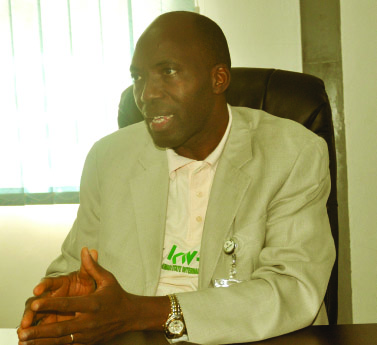State of the State 2017: Reports lauds Kwara's improved internally generated revenue
Date: 2017-10-24

Kwara's rapid improvement in its internally generated revenue has been adduced to the reason the state has kept a low debt profile compared to other states in the country.
According to a new report by BudIT, a civil society organisation, the State of State 2017, which was launched on Thursday and released to the public at the weekend, only four states in the country can pay salaries without resorting to borrowing.
"Important is states' ability to meet their recurrent expenditure obligation with all revenue source - a test of prudent fiscal management. Kano, Katsina, Rivers and Lagos top that portion of the index.
"In effect, only four states could meet their recurrent expenditure obligation without resorting to borrowing or tapping donor funds and other extra-budgetary revenue sources."
In September, online medium, TheCable had reported that 11 states lost large portions of the Federal Accounts Allocation Committee (FAAC) monthly allocation to deductions.
"Bonds issued by the states are usually assisted by Irrevocable Standing Payment Orders (ISPOs), which legally empower the accountant general of the federation (AGF) to withdraw sums due to debt holders from state governments' revenue accounts with the federal government, including interest and capital repayments," BudgIT's report further read.
"As about 83 per cent of states' revenues are collected by the federal government, what accrues to states' coffers is the balance left after obligations to debt holders are deducted from each state's share of revenue.
"The effect of huge debt supported by ISPOs is already eating deep into the account of Lagos, Cross River and Osun states. Osun's net allocation is even in the negative terrain, which invariably puts more pressure on future revenue.
"Also, the index looks at the ability of states to sustainably manage their debt profiles. The index tries to see the extent to which today's revenue can service outstanding debts. Anambra and Yobe top the index.
"Osun trails the overall index. The state's inability to meet its recurrent expenditure obligations, its heavy debt profile and inefficiency in the collection of internally generated revenue weighed seriously on the state.
"Kwara's rapid improvement in its internally generated revenue helps the state's performance on the index. Also noticeable is the 22.56 per cent, 52.18 per cent, 2.29 per cent and 2.78 per cent, fall in the debt profile of Delta, Kebbi, Gombe and Ebonyi states, respectively."
Recall that the revenue generation agency in Kwara State; KWIRS generated an incredible N17.4billion in 2016 despite recession. The figure was an improvement in the N7 billion collected in the whole of 2015 by same agency.
Also, the agency raked in another N14.7bn in from January- August 2017, according to the Chairman; Dr. Muritala Awodun.
1,272 fail Nigerian Law School exam
The Nigerian Law School on Saturday released the summary of the final examination results conducted in August.
Head of Information and Protocol of the Nigerian Law School, Chinedu Ukekwe, in a statement said 1,272 candidates failed out of a total of 5,891 that participated in the examinations.
The candidates who failed represented 21.6 per cent.
"29 students made First Class, 211 Second Class Upper, 1,046 Second Class Lower."
He said 2,999 got a Pass, while 334 came out with conditional Pass.
4,285 candidates were successful and will be called to the Nigerian Bar.
A further breakdown of the results showed 72.7 per cent passed, while those with conditional Pass represented 5.7 per cent.
Ukekwe in the statement revealed that the "Call to the Bar ceremony for the successful candidates will hold in Abuja on November 28 and 29."
Source



